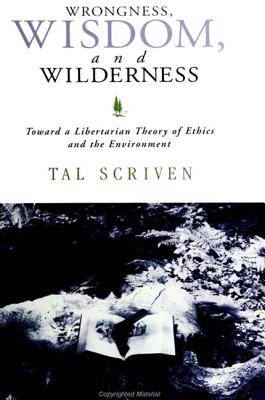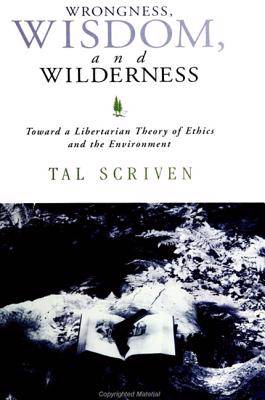
Wil je zeker zijn dat je cadeautjes op tijd onder de kerstboom liggen? Onze winkels ontvangen jou met open armen. Nu met extra openingsuren op zondag!
- Afhalen na 1 uur in een winkel met voorraad
- Gratis thuislevering in België vanaf € 30
- Ruim aanbod met 7 miljoen producten
Wil je zeker zijn dat je cadeautjes op tijd onder de kerstboom liggen? Onze winkels ontvangen jou met open armen. Nu met extra openingsuren op zondag!
- Afhalen na 1 uur in een winkel met voorraad
- Gratis thuislevering in België vanaf € 30
- Ruim aanbod met 7 miljoen producten
Zoeken
Wrongness, Wisdom, and Wilderness
Toward a Libertarian Theory of Ethics and the Environment
Tal Scriven
€ 145,45
+ 290 punten
Uitvoering
Omschrijving
This surprising work may well change our ideas about what libertarianism is and what it can be. Tal Scriven elaborates and defends a libertarian theory of social ethics that can support welfare, reverse discrimination, and environmental preservationism; biocentrism, Nietzschean perspectivism, and laws requiring good Samaritanism; and utilitarianism, the social contract theory, and legal moralism--all at the same time. In the process, he offers strikingly original analyses of figures as varied as Plato, Hume, Rousseau, Kant, Mill, Schopenhauer, Nietzsche, and Dewey. The first part of the book articulates a libertarian approach to the ethics of social policy, arguing that the principle of utility should be understood, in judging social policy, through application of the principle of harm, or wrongness. Part II draws on Plato, Nietzsche, and Mill to give an account of ideas relevant to moral reflection on individual lives, analyzing various theories of prudential wisdom that apply to the private realm of purely personal action. Part III deals with our relationship, as individuals and societies, to nature. Scriven argues that nothing logically prevents a well-constructed libertarianism from supporting environmental-ethics positions at least as radical as biocentrism, although he finds deep problems with going as far as ecocentrism and its postmodern variants.
Specificaties
Betrokkenen
- Auteur(s):
- Uitgeverij:
Inhoud
- Aantal bladzijden:
- 218
- Taal:
- Engels
- Reeks:
Eigenschappen
- Productcode (EAN):
- 9780791433713
- Verschijningsdatum:
- 12/06/1997
- Uitvoering:
- Hardcover
- Formaat:
- Genaaid
- Gewicht:
- 489 g

Alleen bij Standaard Boekhandel
+ 290 punten op je klantenkaart van Standaard Boekhandel
Beoordelingen
We publiceren alleen reviews die voldoen aan de voorwaarden voor reviews. Bekijk onze voorwaarden voor reviews.











